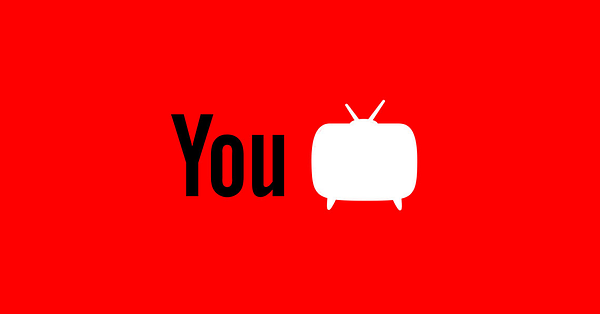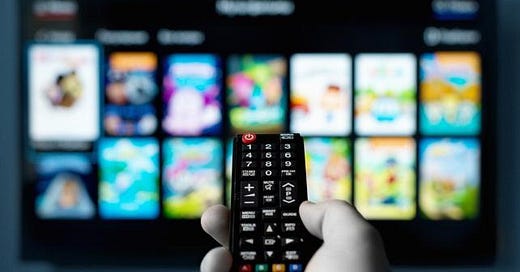Happy Friday!
Even if we put aside the 14 hour Facebook Ad Manager outage that may have cost the Menlo Park based giant $53 Million, it has been another busy week in AdTech news:
We start the newsletter by looking at Project OAR the new consortium which includes Universal, Disney, Freewheel & Xandr that aims to set standards for addressable TV. From here we stick with TV, turning our attention to the rumor that Google will change the way it pitches YouTube TV to advertisers to try & get greater access to addressable TV budgets.
Next up we look at news that politicians on both sides of the pond are becoming increasingly concerned about how much power Google & Facebook wield. Stateside there’s been calls to break them up & yesterday the UK Chancellor called for regulators to investigate the digital advertising market. The question on every programmatic practitioners mind is how would you break up something as big as Google?
Finally we round off the newsletter with the announcement that Pandora has begun selling commercial time in streams on the Google Home & Amazon Echo, it’s an exciting development and potentially a very interesting opportunity for programmatic ads.
As I said it has been a busy one, there’s not even room to cover off Xandr’s plans to grow its headcount aggressively in Europe or the IAB Tech Lab’s OpenRTB working group releasing the final version of the app-ads.txt specification... Maybe next week!
Enjoy!
Setting Standards: Project OAR
Programmatic TV has seen hockey stick like growth over the last 18 months, but as with most nascent markets standards are not yet defined. This looks set to change, with Xandr, Freewheel, Disney, Universal, CBS & Turner to name but a few all coming together to define standards for addressable TV advertising:
The consortium is called "Project OAR," which stands for “Open, Addressable, Ready” its stated ambition is to develop & deploy a open source standards for delivering ads to smart TVs.
Whilst maybe not as headline grabbing as switches to first price auctions might be standards are important factor in a market reaching maturity. Many of you will recall OpenVV a consortium led by TubeMogul that helped facilitate the adoption of a viewability standard for online video advertising back & more recently in the context of Header Bidding Prebid.js has served a similar role. This could to the same for addressable.
Whilst it is fair to say there have been other initiatives in addressable previously but the hope is the scale of partners involved will make this consortium more fruitful. Vizio said once standards were developed, it will allow programmers to deploy ads through its Smart TVs, a significant development given this manufacturer makes up around 25-30% of US smart TVs.
This move is definitely a step in right direction & coupled with efforts from TV networks to standardize attribution using techniques developed by Data Plus Math, it should provide a more stable market which will encourage investment & should help traditional broadcasters fend off digital advertising giants like Google. Speaking of which…
YouTube Is Chasing Addressable TV Budgets
Digiday had the scoop on Thursday that YouTube is changing how it sells inventory to capitalize on advertisers’ growing interest in addressable TV:


Historically YouTube TV was an inventory source that was included in their “premium” Google Preferred offering often referred to as GP. The rumor (which the article said have been confirmed by multiple sources) is that YouTube plans to pitch advertisers on buying YouTube TV inventory separately during this year’s up-fronts.
Word on the street is that advertisers will have to sign deals for Preferred to access YouTube TV, but they will be able to manage their YouTube TV campaigns independently of their Preferred campaigns.
This could be really attractive to buyers as a consistent challenge with addressable TV (beyond the lack of standards) is constricted supply, if Google makes it easier for TV buyers to top up their linear campaigns with YouTube on connected TVs it could be become the de facto way to top up reach on the big screen, meaning this could be yet another market they might come to dominate. Speaking of which…
Breaking Up Google?
Late last week a US Senator (& 2020 presidential candidate) laid out how her administration would rein in companies that have “too much power over our economy, society & democracy” these companies included Google & Facebook.
She’s not the only one who feels this way, on Thursday the UK chancellor called on the competition regulator to investigate the UK’s £13bn digital advertising market, following an independent report into the dominance of these giants:
These businesses capture the majority of spend & growth in digital advertising, on both sides of the pond & in the context of programmatic many commentators have long bemoaned that this is stifles innovation & competition. It seems the politicians are waking up to this. The key question is what might breaking up Google the dominant player in AdTech look like? Firstly if you’ve not yet read this thread, do so:

There’s obviously lots of options, regulators seeking to limit the power of Google may consider to force divestiture of what was DoubleClick from Google’s main business. This may address the criticism leveled at Google that’s it’s unfair YouTube inventory is a DV360 exclusive, but it would not disrupt the dominance on the buyside that the Campaign Manager & DV360 integration brings & on the sell side it would not disrupt the Google Ad Manager business.
Arguably even spinning off the buy & the sell side would not do this, so potentially regulators would have to force Google to spin out each business, challenging given they all sit on Google infrastructure, this would likely take years.
Some have postulated whether Google might consider measures to stave off these concerns, whilst I think this is unlikely, options put forward have been making their ad-server interoperable with their competitors DSPs & opening up YouTube to 3rd party bidders another.
A more open ecosystem would be welcome but I think this is unlikely in the near term, so any business hoping that government intervention will make their life meaningfully easier any time soon will be disappointed. Longer term I am hopeful that legislation may help bring the walls down a little if not a lot.
More Programmatic Ads On Voice Assistants?
The WSJ broke the news this week that Pandora Media has begun selling commercial time in streams playing on Amazon Echo and Google Home smart speakers:
Previously they had let advertisers buy across “connected home” devices, but they have now improved targeting to let advertisers reach people on specific devices like consoles, smart TVs or voice assistants like Alexa.
One example of how this targeting might be used in the context of voice assistants is; an advertiser targets a Pandora listener with an advert on their Alexa which includes a prompt to order from Amazon, the recipient could place an order & return seamlessly to listening to their Pandora stream. I’d imagine this tactic might be very popular amongst CPG advertisers concerned that assistants & voice based search could/are bringing with them the death of brands.
Other than Spotify’s success It’s fair to say that compared to other channels where the sale of inventory has been automated, programmatic audio has been slower to catch on, initiatives like this make me hopeful this could change, by opening up platforms that are becoming the route many consume music & radio in their homes. Why? Well Pandora owns AdTech business AdSwizz whose exchange is used by some of the largest publishers/broadcasters around to connect sellers with buyers.
One can see the stars aligning, greater precision in targeting these devices coupled with greater scale if/when they roll out the type the conversational formats referenced in the WSJ article across their exchange.
Finally we’ve talked a lot about openness in this weeks newsletter my hope is if the market develops in this way, AdSwizz (who have a DSP as well as an exchange) make this available across all 3rd party bidders, if they do, as with TV which is where we started off this weeks newsletter, it’s definitely going to be exciting times for Audio in 2019.
Okay that’s the newsletter done for another week & thank you for making it this far!
If you want to get in touch
Twitter here: @SimonJHarris
Or LinkedIn here: linkedin.com/in/simonjulianharris/
If you know someone who might like to receive next weeks newsletter send them here:
https://simonjharris.substack.com/p/happy-friday
Thanks & have a lovely weekend
Simon








